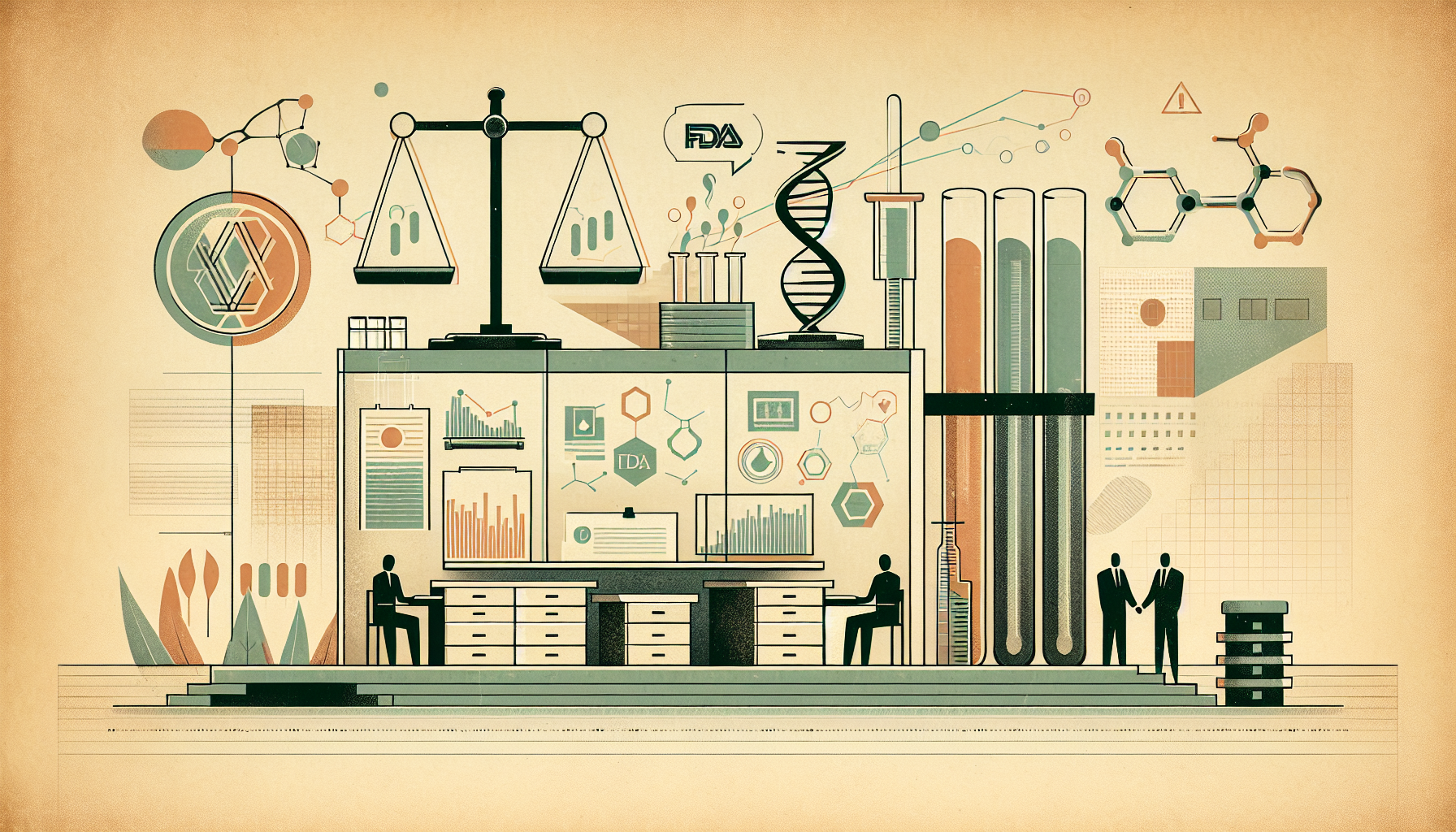Understanding the Legal Landscape of FDA Regulation on Laboratory-Developed Tests Amidst Ongoing Litigation

As the FDA seeks to regulate laboratory-developed tests (LDTs) as medical devices, legal challenges are emerging that pose significant implications for technology startups. Understanding this evolving legal landscape is crucial for compliance and operational strategy as the new administration may shift regulatory priorities.
Definition and Purpose of Laboratory-Developed Tests (LDTs)
Laboratory-developed tests (LDTs) are diagnostic tests that are designed, manufactured, and used within a single laboratory. Unlike traditional medical devices regulated by the FDA, LDTs are often tailored to the specific needs of patients and laboratories, allowing for innovative approaches in diagnostics. They can address niche or emerging medical needs that may not justify the development of widely marketed tests.
Overview of the FDA's Regulatory Framework and Its Recent Updates
The FDA has historically exercised enforcement discretion over LDTs, meaning that many LDTs did not require premarket review; however, this stance is changing. Recent FDA initiatives suggest a move toward stricter oversight. In April 2024, the FDA issued its final rule stating that LDTs will be treated as medical devices, thereby requiring them to comply with the same regulatory standards applicable to traditional diagnostics. This shift is expected to enhance patient safety but may impose significant compliance burdens on laboratories.
The Difference Between LDTs and Traditional Medical Devices
Traditional medical devices are subject to rigorous premarket approval processes designed to ensure their safety and efficacy. In contrast, LDTs, prior to the new rule, were often developed and validated in-house without the same level of oversight. The key differences lie in the regulatory pathways and the associated compliance requirements, which will increasingly align under the new FDA regulations.
Analysis of the Ongoing Litigation Against the FDA Regarding LDT Regulations
Various stakeholders, including the American Clinical Laboratory Association (ACLA) and the Association for Molecular Pathology (AMP), are challenging the FDA's authority to regulate LDTs. These lawsuits argue that the FDA's enhanced oversight could stifle innovation and restrict access to vital diagnostic tools. The outcome of these legal battles may redefine the regulatory landscape for years to come.
Impact of the Major Questions Doctrine on FDA's Authority
The Major Questions Doctrine has gained attention as it relates to regulatory authority and the need for explicit Congressional authorization for significant regulatory actions. Recent Supreme Court rulings suggest that agencies like the FDA may face increased scrutiny when attempting to regulate domains with substantial economic or political significance, such as biotechnology and personalized medicine. This could hinder the FDA’s capacity to implement its recent final rule without clear legislative backing.
Potential Changes in Regulatory Approach with the New Administration
With a new administration, the approach to regulating LDTs may shift dramatically. Legal experts anticipate potential rollbacks of stringent regulatory measures, impacting compliance strategies for laboratories. Thus, remaining informed about potential regulatory changes is critical for stakeholders in the healthcare technology sector.
Significance of Understanding FDA Regulations and Compliance for Legal Practices
For law firms and in-house counsel representing clients in the healthcare sector, being well-versed in the FDA’s evolving regulatory framework is essential. Legal professionals must navigate not only the legal implications of compliance but also the technical aspects underlying LDTs and their development.
Technical Insights Needed to Navigate the Complexities of LDTs
Understanding the technical specifications, validation processes, and market dynamics surrounding LDTs enables legal practitioners to provide informed advice and strategic insights. This technical grounding is crucial when assessing compliance risks and formulating legal strategies tailored to the unique characteristics of LDTs.
How a Dual Expertise Can Mitigate Legal Risks in Innovative Healthcare Technologies
By combining legal and technical knowledge, firms can better anticipate regulatory changes, assess risk exposure, and defend against litigation. This dual expertise empowers clients to make informed decisions while minimizing legal vulnerabilities in an increasingly complex regulatory environment.
Promise Legal's Unique Advantage
Best Practices for Legal Teams When Dealing with FDA Regulations
Legal teams should stay informed about ongoing regulatory developments and engage in continuous education concerning the technological underpinnings of the products they represent. Establishing rigorous compliance protocols and risk management frameworks is paramount in this evolving landscape.
Recommendations for Proactive Legal Strategies in Light of Fast-Evolving Regulations
Legal professionals should advocate for their clients to take a proactive approach to compliance. This includes regular audits of regulatory practices, investment in legal and technical training, and establishing alliances with regulatory bodies. Early engagement can help mitigate potential compliance issues before they escalate.
Navigating the complex landscape of FDA regulation of laboratory-developed tests is crucial for technology startups. With the potential for significant legal shifts under a new administration, specialized legal guidance is essential. Partnering with Promise Legal equips in-house counsel and law firms with the necessary expertise to navigate these challenges successfully. Our unique blend of legal and technical proficiency ensures that clients remain compliant, minimize risks, and can focus on innovation in healthcare technology.

